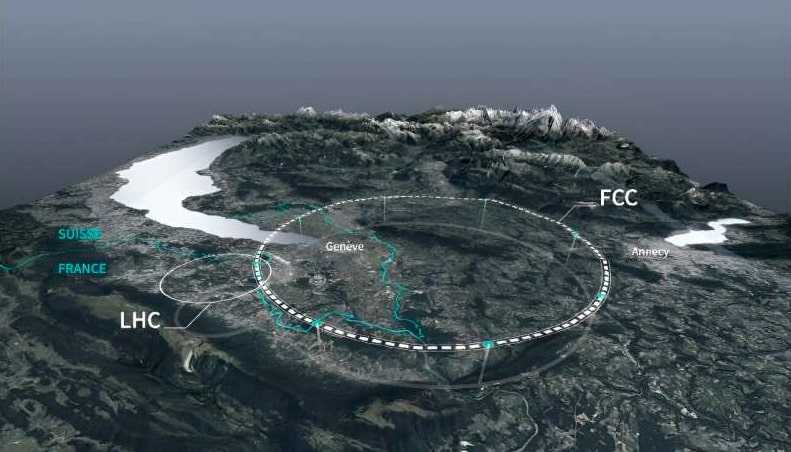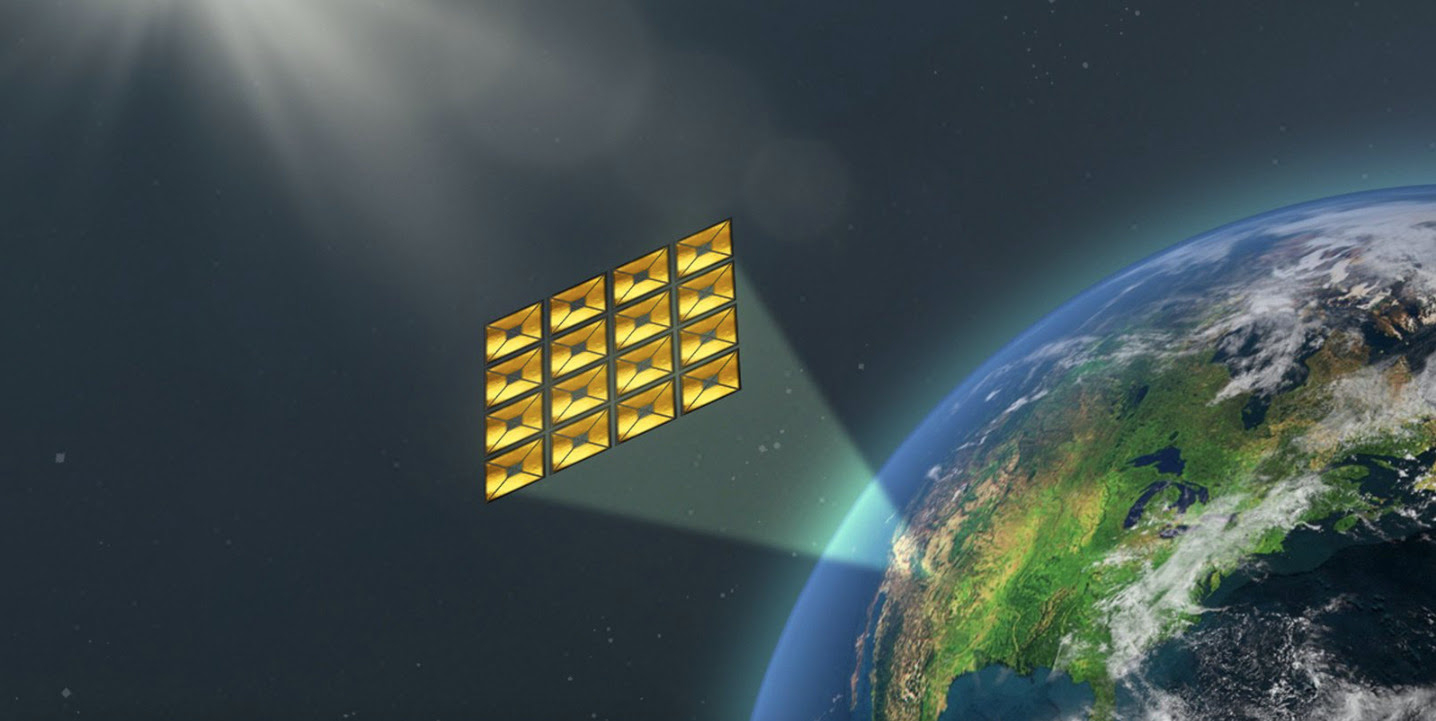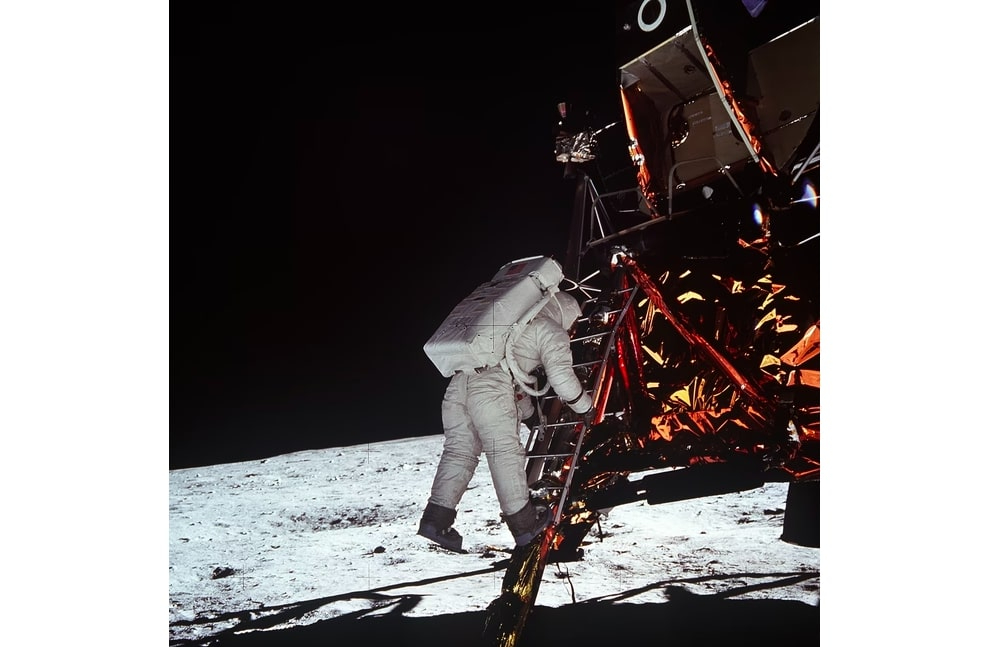Behind Europe’s plan to unlock the secrets of the universe

Image: CERN
On Monday, CERN unveiled plans for the “Future Circular Collider” – a new $17 billion particle accelerator that will be over 3x larger than the Large Hadron Collider, aka the biggest machine in the world.
Some quick background: The Large Hadron Collider’s mandate is like the Incredible Hulk – to smash. The machine collides hadrons (aka subatomic particles) together at 99.99% the speed of light using an underground circular tunnel 17 miles in circumference.
And its overall contribution to science may be as impressive as its size. The LHC has generated 3,000+ scientific papers on many areas of fundamental particle physics, including the discovery of the Higgs boson in 2012.
- But, but, but: Over the past decade, the machine hasn’t revealed any significant new physics that could help answer some of the deepest mysteries of the universe.
CERN is hoping an even larger particle accelerator will change that. The proposed Future Circular Collider would have a 57-mile circumference, and aim to smash subatomic particles together at a maximum energy 30x higher than the LHC.
- CERN says the increased energy will help scientists figure out some of the key unanswered questions about our universe, including whether our reality contains hidden extra dimensions and what makes up dark matter or dark energy (mysterious and invisible substances comprising ~95% of the universe).
👀 Looking ahead… If approved, the FCC would start smashing its first particles together around 2050, and start its highest-energy collisions around 2070.
Share this!
Recent Science & Emerging Tech stories

Science & Emerging Tech
| January 23, 2024Harvard’s academic dishonesty saga continues
🤔 The Dana-Farber Cancer Institute – an affiliate of Harvard Medical School and the #4-ranked cancer hospital in the world – is seeking retractions or corrections to dozens of scientific papers over allegations that four of its senior researchers falsified data.

Science & Emerging Tech
| January 19, 2024Space-based solar power is one step closer to reality
☀️🛰️ In January 2023, Caltech scientists launched the first-ever test of a satellite that can collect solar power in space and then beam it down to Earth. Now, one year later, the scientists announced their experiment was a resounding success.

Science & Emerging Tech
| January 18, 2024Why moon landings are proving harder now than 50 years ago
🚀🌕 In 1972, NASA landed its sixth crewed mission on the Moon – but no astronauts have returned to the lunar surface ever since. So, what has prevented a successful return trip?
You've made it this far...
Let's make our relationship official, no 💍 or elaborate proposal required. Learn and stay entertained, for free.👇
All of our news is 100% free and you can unsubscribe anytime; the quiz takes ~10 seconds to complete